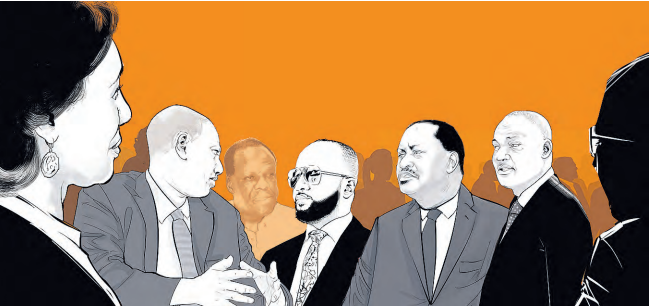

The fight for inclusivity in governance is not just about political goodwill—it is the foundation of Kenya’s democracy.
True inclusivity ensures that every citizen has equitable access to national resources and opportunities.
One of the most effective ways to achieve this is by devolving resources and ensuring that every county and community has access to essential public services.
Article 6(3) of the constitution reinforces this principle by requiring that national government services be accessible in all parts of the republic.
Inclusivity must go beyond appointments and power-sharing—it should be about guaranteeing that all Kenyans benefit from national development. The constitution emphasises inclusivity.
A significant step toward inclusivity was the recent signing of a Memorandum of Understanding between President Ruto and Raila Odinga.
This agreement lays the foundation for bipartisan collaboration and is a crucial step toward fostering an inclusive government that transcends political rivalries.
If implemented with genuine intent, the MoU can help bridge historical political divides and ensure that all communities have a stake in national leadership.
However, its success will depend on whether both leaders prioritise national unity over political expediency.
Despite positive steps, the Ruto administration has faced criticism for its approach to governance, which has often favoured political allies at the expense of broader national representation. His government has been accused of sidelining key regions and communities, reinforcing the perception that appointments are rewards for political support.
Seeking Raila’s involvement now suggests an acknowledgement that this approach was flawed.
While this shift is welcome, it also highlights the need for leadership that prioritises national cohesion from the outset rather than as a corrective measure.
Kenya’s politics remain divided along regional and ethnic lines. While Raila’s bipartisan talks with Ruto aim to promote stability, scepticism persists due to past power-consolidation tactics.
Without real reforms for equal representation, the negotiations risk being symbolic. Moreover, a broad-based government must not weaken Parliament’s oversight of the executive.
To achieve true inclusivity, Ruto must implement meaningful reforms beyond symbolic gestures. This includes a transparent public appointment process that ensures fair regional representation.
An independent oversight body should audit appointments for compliance with constitutional inclusivity.
Additionally, devolving more resources to the ward level would guarantee equitable access to government services for all Kenyans, regardless of political afflliation.
Youth, women, people with disability and ethnic minorities must also be given a significant role in governance. Affirmative action programmes should be expanded to provide leadership training and mentorship opportunities, ensuring a pipeline of diverse leaders for the future.
Additionally, public service recruitment should be based on merit while ensuring regional and ethnic balance. Establishing quotas for underrepresented communities would help rectify historical exclusions.
Bipartisan engagement must also go beyond political survival. Structured dialogue forums between the government and the opposition should be institutionalised to ensure inclusivity is embedded in governance rather than used as a short-term political tool.
Legal frameworks should be put in place to formalise bipartisan consultations, preventing inclusivity from being exploited for political gain.
Inclusivity in governance is crucial for the success of national reforms. A leadership that reflects Kenya’s diversity ensures that policies address the needs of all citizens rather than a select few.
Without true representation, key reforms risk being viewed through partisan or ethnic lenses, undermining their effectiveness.
However, inclusivity must not be used as an excuse to silence the opposition. A healthy democracy depends on checks and balances, and Parliament must continue to provide oversight, regardless of political affiliations.
Ruto and Raila’s push for a broad-based government is both a political strategy and a constitutional necessity. While some view it as a survival tactic, it marks a shift from winner-take-all politics toward inclusivity.
If successful, it could unify Kenya and reshape its governance; if it fails, it risks reinforcing the exclusionary politics that have long hindered progress.
The writer is a political strategist and expert in
leadership and governance








![[PHOTOS] Guardian Angel bus catches fire in Kikuyu](/_next/image?url=https%3A%2F%2Fcdn.radioafrica.digital%2Fimage%2F2025%2F04%2F58287f0a-f201-4a78-87f0-6f147ad8ba8a.jpg&w=3840&q=100)



